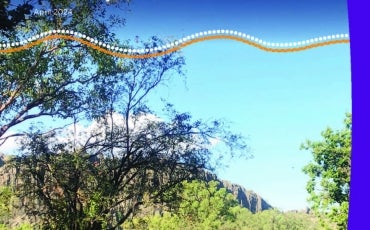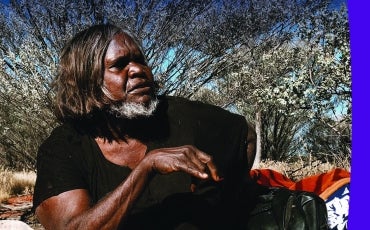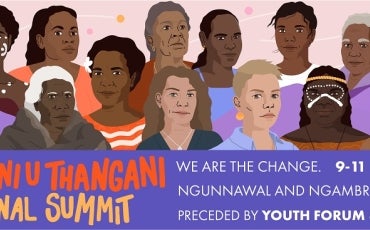Social Justice and Native Title Report 2016

Foreword
As Acting Aboriginal and Torres Strait Islander Social Justice Commissioner and Deputy Aboriginal and Torres Strait Islander Social Justice Commissioner, we are pleased to present the Social Justice and Native Title Report 2016.
This is the seventh and final report during the term of previous Aboriginal and Torres Strait Islander Social Justice Commissioner, Mr Mick Gooda. Mr Gooda was appointed Royal Commissioner to the Royal Commission into the Child Protection and Youth Detention Systems of the Northern Territory in August this year.
During his term as Aboriginal and Torres Strait Islander Social Justice Commissioner Mr Gooda reflected on the impact of lateral violence in Indigenous communities. He advocated for a new relationship with government that focused on Indigenous knowledge and expertise on matters that impact on their lives. Mr Gooda participated in international forums and progressed a human rights agenda with national, state and territory governments. He supported community driven initiatives like the Bourke justice reinvestment work, and could be found most mornings at the National Centre for Indigenous Excellence, boxing with the young people of Redfern together with local Aboriginal leadership and the local police.
We all felt the impact of the images of the boys in Don Dale Youth Detention Centre, when the media brought their treatment out of the confines of the institution and into our lounge rooms.
For Indigenous Australians, this was mixed with familiarity about the high levels of over representation in police custody and gaols, and knowledge that the criminal justice system has always been central to the process of colonisation.
This year we acknowledge that 25 years ago the Royal Commission into Aboriginal Deaths in Custody (RCIADIC) tabled 339 recommendations. Immediately after the release, there was a period of implementation and monitoring across the states. But the momentum was lost long ago and the numbers of Indigenous people incarcerated have increased.
In this, as in many areas of law and policy, Romlie Mokak’s reference to WEH (Bill) Stanner’s 1968 Boyer lecture, The Great Australian Silence in his 2016 Medicine and Society Oration titled A question of value: Aboriginal and Torres Strait Islander Health is particularly pertinent.
In his lecture Stanner noted the absence of Aboriginal peoples from the histories and commentaries he reviewed. He wrote:
... inattention on such a scale cannot possibly be explained by absent-mindedness. It is a structural matter, a view from a window which has been carefully placed to exclude a whole quadrant of the landscape. What may well have begun as a simple forgetting of other possible views turned into habit and over time into something like a cult of forgetfulness practised on a national scale. We have been able for so long to disremember the Aborigine that we are now hard put to keep them in mind even when we most want to do so.[1]
Mokak poses the question:
What price for that silence, for that inattention, that forgetting, that disremembering?[2]
As we wait for the Western Australian coroner to decide whether to accede to Ms Dhu’s family’s request to release the footage of her final hours, we think about the longstanding silence, inattention and disremembering in regard to the RCIADIC recommendations. We see disproportionately high numbers of men and women held in police cells, incarcerated in gaols, and significant numbers passing away from violence, illness or a combination of both while detained by the state this year. These increasing rates of incarceration and death, 25 years after the RCIADIC are an intolerably high price.
Key to changing these statistics and the experiences of Indigenous peoples is proper engagement – real listening, valuing and implementing the solutions proposed by Indigenous Australians. It is a call that Commissioner Gooda made repeatedly, as have other Indigenous leaders. In practice this would include:
- delivering on measures set out in the Redfern Statement. We understand that initial meetings have been positive and hope they continue to strengthen;
- following through on setting justice targets and encouraging state and territory governments to do the same;
- ratification of the Optional Protocol to the Convention against Torture and other Cruel, Inhuman or Degrading Treatment or Punishment (OPCAT);
- continue to progress consultations with Aboriginal and Torres Strait Islander peoples about Constitutional recognition, agreements and treaty;
- implementation of a reform agenda being developed by the Indigenous Property Rights Project;
- reconsideration of an opt in approach to income programs; and
- commitment to the issues raised at the Universal Periodic Review (UPR) including a suitable tracking and monitoring mechanism.
These and other initiatives would make structural change and contribute to a system which values Indigenous knowledge and is less likely to be silent about, or inattentive to the human rights of Indigenous peoples.
[1] W.E.H Stanner, (2010) The Dreaming and Other Essays, Black Ink Books, Melbourne, 297.
[2] Romlie Mokak, ‘A question of value: Aboriginal and Torres Strait Islander Health’, (Speech delivered at the 2016 Medicine and Society Oration, Melbourne, 10 August 2016) <http://www.lowitja.org.au/sites/default/files/docs/CRANLANA-RMokak_10082016.pdf.pdf>



